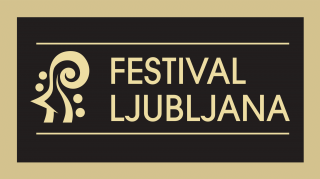At 8.00 pm on Monday, 29 July, the 72nd Ljubljana Festival will welcome one of China’s leading orchestras, the Ningbo Symphony Orchestra, to the home of the Slovenian Philharmonic. The orchestra will be led by its chief conductor Ji Yu, a tireless promoter of contemporary Chinese music, and joined by soloist Yuanchun Yu, a teacher of the pipa at the Central Conservatory of Music in Beijing.
The pipa, an instrument that is considered the queen of Chinese traditional music, will be at the heart of the programme. It is a plucked string instrument with four strings and a varying number of frets. It is also known as the piba, ruan or yueqin – which literally translates as “moon lute”. It is one of the oldest but, at the same time, most common musical instruments. Musicians have been playing the pipa for more than 2,000 years, although almost nothing is known about its origin.
Many people in China associate it with the period of the Han dynasty, specifically with the princess Liu Xijun, who was to be sent to the barbarian king Wusun to become his wife. In order to help the princess stave off boredom on her journey and allow her to calm her emotions, the musical instrument that later became known as the pipa was created for her. This is, however, just one of a great many popular traditional Chinese stories.
The exact date of origin of the instrument has yet to be determined. Many researchers believe that the pipa was invented in the period of the Qin dynasty, the first dynasty of imperial China (221–206 BC), although it did not reach the peak of its popularity until the Sui and Tang dynasties (AD 581–907). Most of the music of this period was performed primarily on the pipa.
Compositions performed on the pipa tend to be quite lyrical and original. However, the instrument is not only used to perform lyrical works in the “Wenqiu” style, but also military pieces which are similar to the “Wuqiu” style. While the former style is characterised by emotional, meditative and melancholy colouring, the latter is distinguished by its drama and power. These days the pipa is most often heard in orchestras and traditional Chinese ensembles, although it is also used to perform solo works.
Yu Yuanchun, who will play the pipa at the concert in Ljubljana, has received invitations to more than 30 countries in recent years and has appeared as a soloist at some of the biggest concert halls in the world. Before arriving in Ljubljana, she shared her viewpoint with us: “I believe that the musical language of the pipa can act as a bridge between past and present, and also between different cultures. For me, performing and spreading the culture of the pipa has become my mission.”

